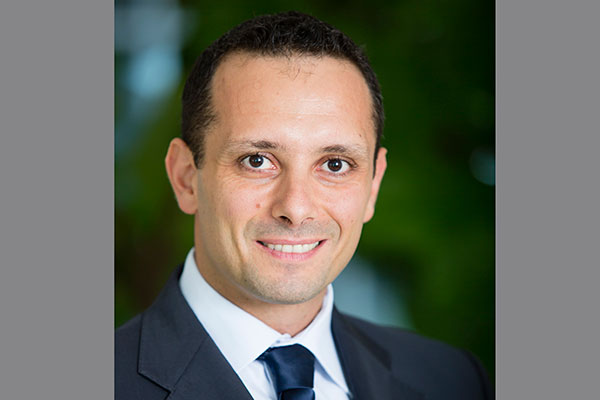
Rubeis: Players should brace several market uncertainties
in the coming years
GCC downstream to see medium-term volatility: study
MANAMA, December 12, 2017
The GCC refining market is expected to remain volatile in the medium term, with significant uncertainties on the demand side, mainly linked to the economic growth prospects of the US, Europe and China, a report said.
In the longer term, several trends are expected to have a potentially disruptive impact on refined product demand, added the first Gulf Downstream Industry Survey, conducted in cooperation between the non-profit Gulf Downstream Association (GDA) and The Boston Consulting Group (BCG), a global management consulting firm.
The trends include efficiency improvements; electric vehicles and other alternative fuels for transportation, (e.g. CNG, LNG, and hydrogen); demographics (for example, an aging population in advanced economies); new mobility models, such as car-sharing/-pooling; changes in the power generation mix, with increasing share of natural gas; and the new MARPOL regulation, with the development of a new marine fuel mix.
All of this exists in a context of continued capacity additions in the Middle East and Asia, triggered often by self-sufficiency and energy security considerations rather than economics or global demand and supply considerations. All these variables, both on the supply and on the demand side, will contribute to a persisting situation of uncertainty also longer term.
“Refining is a traditionally cyclical industry, so players are used to ups and downs – nevertheless, the uncertainties lying ahead in the next decade are probably more than used to be in the past,” said Mirko Rubeis, partner & managing director at BCG.
The survey gauged the sentiment about external factors, such as macroeconomic sentiment, refined product supply and demand, refining margins, competition, and regulation. It also investigated internal capabilities, such as technology and innovation, operations, projects, organization and processes, and people and talent.
“The latest trends of the GCC Downstream Industry have been consolidated in a survey,” said Audah Al Ahmadi, secretary general of the Gulf Downstream Association (GDA).
“Sharing views and learning from each other is particularly important when facing decisions in a changing environment. For this reason, we were very excited about the idea of partnering with BCG on this initiative. The ambition of GDA is indeed to bring together all the leading players of the Gulf Downstream Industry under one roof and facilitate sharing knowledge and best practices.”
While the external market shows elements of uncertainty and volatility, GCC players have clear ideas with regards to the internal capabilities that need to be developed to compete effectively in the market, the report said.
• 74 per cent of respondents believe that developing advanced trading capabilities for refined products is either “important” or “very important” for Gulf refiners to capture more value from the growing export of refined products.
• For 92 per cent of respondents, technology and innovation are considered “important” or “very important” for their organization. They are seen as particularly critical given the expected disruptions that will affect the downstream industry in the coming years.
In terms of operational excellence, reliability and gross margin optimization are considered the most important improvement areas.
“Reliability should be considered a ‘table stake’ nowadays, but still several players struggle to maintain high utilization rates,” said Rubeis. “Gross margin optimization is essential to extract value from the large investments carried out in the last years, but still in many assets focus remains on volume balancing for the local market rather than on value maximization.”
Capital programs of Gulf refiners are expected to increase in value or remain the same in the future. However, almost half of the respondents believe that they do not have yet the full set of systems, processes, and capabilities to effectively manage large capital programs. “This is a clear call to action considering the large capital expenditures in the region,” noted Rubeis.
Gulf refiners also face challenges to attract and retain talents, particularly within the local workforce.
“Given the strong competition for talents from other industries, downstream companies should really invest in these areas, particularly in the way they manage talents, develop their capabilities, motivate them through adequate career paths,” added Rubeis.
Capability building should focus mainly in the area of technology and innovation, followed by engineering and technical, ranking second. Not surprisingly, the other areas of attention are operations and commercial/marketing, reflecting the shift required to key players in the region to evolve from simple manufacturer to trader and marketer of products in the competitive global arena. – TradeArabia News Service







